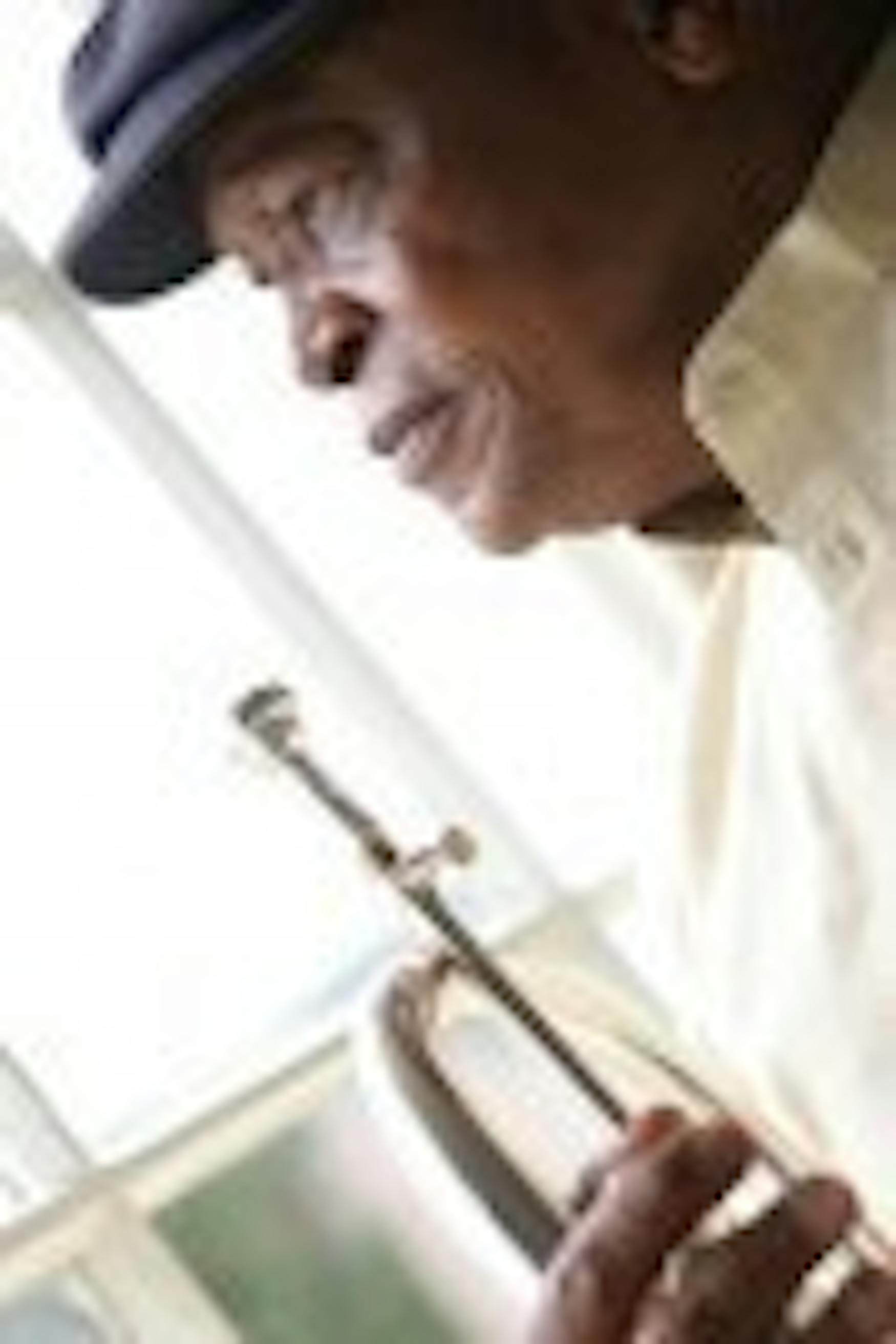Boston celebrates South African jazz legend
Hugh Masekela was born in Memphis, Tenn. to two white parents. One day, 2-year-old Masekela was playing in the Mississippi River, accidentally fell in and was whisked away by the current. He was carried all the way into the Gulf of Mexico and out into the sea until he ended up in the shores of Cape Town, South Africa among the walruses and seals. As the toddler washed ashore in Africa, he spent his days eating oysters fed to him by the seals and rolling in the deep, dark mud-you see, that's how he lost his white complexion and blonde hair. That's how baby Hugh grew up in Cape Town, until one day, his parents happened to come from Memphis on vacation-what a coincidence! When they saw him, his momma exclaimed, "There's my baby!" and picked him up to go back home. Hugh was finally back in Tennessee, and his parents even let him keep his dark skin and hair. And that's how jazz music legend and anti-apartheid activist Hugh Masekela, 71, introduced himself during a spirited performance last Friday at the Berklee Performance Center. The audience, clearly loving Masekela's tongue-in-cheek humor, burst into laughter as he told the intricate and seemingly improvised story about his origin.
In fact, Masekela was born in Witibank, South Africa and grew up facing the hardships and inequality that plagued the country during the 1950s and '60s. As a trumpet player, singer, percussionist, composer and bandleader, his music vividly portrays Africa's agony, protesting the government's oppressive power and enforcement of apartheid. Songs like "Coal Train"-about the spiritual train that carried the enslaved men and women of Africa to redemption-describe Africa's sorrow yet carry a hopeful and uplifting message, while "Bring Him Back Home"-composed in 1987-tells of "tomorrow," the fateful day when Nelson Mandela would be freed from prison. That day eventually came in 1990, after the hit single served as an anthem all over the world for the movement to free Mandela.
"Tomorrow" has turned out to be brighter for both Masekela and Africa since those times of tyranny. Earlier this year, he helped South Africa make history by performing his Grammy-nominated tune "Grazing in the Grass" at the 2010 FIFA World Cup's Kick-Off Celebration Concert. Masekela and his son, Sal Masekela from the E! television show Daily 10, were also featured during ESPN's coverage of the World Cup in a series called Umlando-Through my Father's Eyes. The series documented American-born Sal's journey to his father's homeland for the first time, visiting South Africa's and learning about its history and culture.
The listeners at Berklee Performance Center experienced too a journey into Masekela's world. His charisma was undeniable; you could feel his charm spreading into the packed concert hall and infecting everyone with his effervescent laughter. He'd do his old-man dance or sometimes break out the cowbell while the impressive five-piece ensemble behind him laid out jazz and Afrobeat grooves. This was a man who had not lost any bit of passion from his 40-plus years of global success.
The talent in Masekela's group was astounding. I have to give props to the gifted keyboardist Randall Skippers for his extended and fiery solos, as well as to guitarist Cameron John Ward for his ability to flow beautifully between rhythmic and virtuosic solo roles. That's not to say that the rest of the rhythm section-bassist Fana Zulu, percussionist Francis Manneh Fuster and drummer Lee-Roy Sauls-were not spot-on. The group allowed Masekela to shine as the star of the show, backing off their sound when he addressed the crowd.
"I know it's cold out there, Boston," Masekela said during a song, riling up the audience. "But don't bring it in here. I've seen you at those sports games. I know you're a noisy crowd." In another one of his monologues, he said that the audience should stand up for the next song. The reaction was surprising-by the final moments of the concert, everyone was dancing in their seats and raising their hands to clap to the beat, while some even went up to the front of the stage to dance. I didn't expect a crowd of mostly 30- and 40-year-olds to show so much energy, but these are people who have followed and loved Masekela for years. I saw individuals smiling wider than I'd ever seen after the concert, and heard more adults sing (many were belting "Tomorrow!") in public than in any other place. Hugh Masekela had brought the gift of love to Boston.
The concert was part of a series hosted by nonprofit organization World Music/ CRASHarts. For the remainder of the fall season, the series will bring over 15 music and dance acts from Africa, Asia, Europe and the Americas, like the Montréal-based RUBBERBANDance Group and Afrocubism, an ensemble that brings musicians from Cuba and Mali. More information about this world arts offering can be found on worldmusic.org.



Please note All comments are eligible for publication in The Justice.